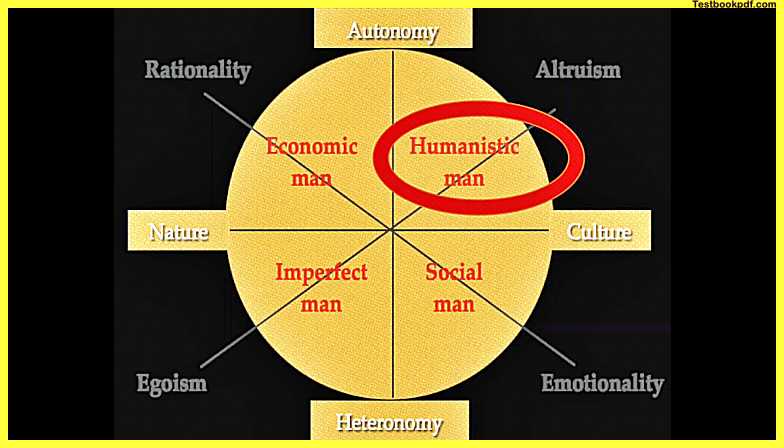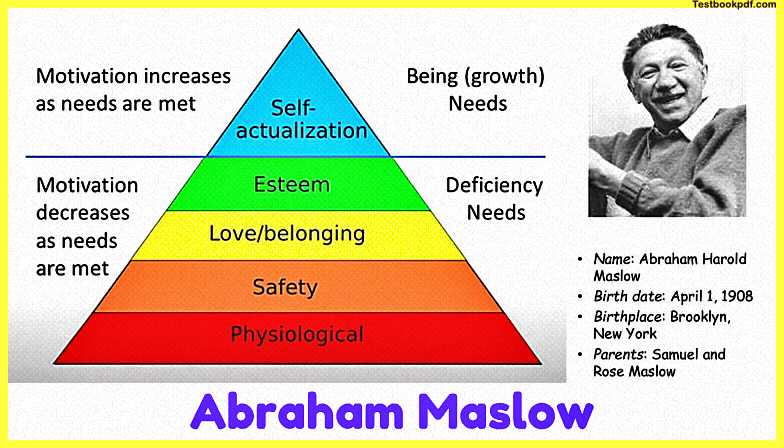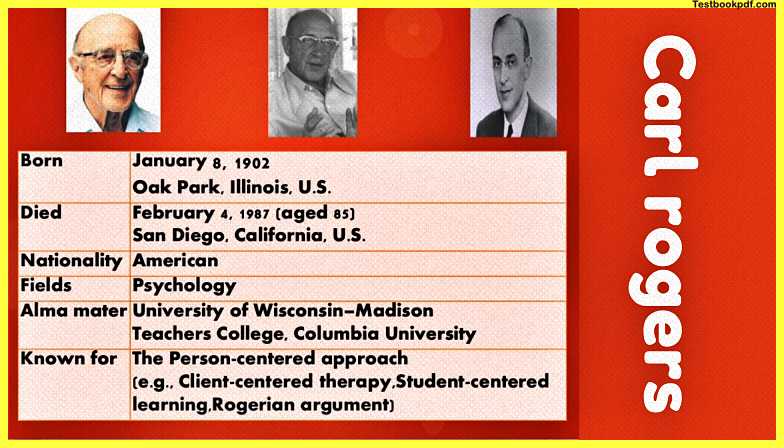Humanistic Approach Psychology Pdf
In this article, we will give you full info related to the Humanistic Approach Psychology Pdf and we are going to deepen our understanding of humanism, taking a psychological perspective. Humanistic psychology (represented by Maslow, and Rogers) arose in the third psychological school in opposition to behaviorism (Skinner, Watson) and psychoanalysis (Freud).

What is humanistic psychology about?
The humanistic understanding of the human person is based on the following assumptions:
- A person is in the process of development (as opposed to the fixed homo -oeconomicus who is not) which is evident in the advancement up the steps of Maslow’s pyramid of needs towards self-realization and transcendency, and where satisfaction is a major source of motivation. If the development process is blocked – the person gets ill. Self-realization does not mean a focus on one’s own development – it primarily means love for all human beings (as opposed to love as the deficiency). And transcendency refers to the capacity of a person to transcend their own interest and live for others.
- A person is good, constructive, rational, altruistic, and creative but not self-made; a person needs the support of other people and society.
- From the two above assumptions, we can see that the individual and the social world create a unified system. So, the person can’t live and flourish apart from society as in the concept homo politicus which can be traced back to Aristotle for whom a person can’t exist and develop without a state. These assumptions impact the range of methods used in humanistic psychology. We cannot analyze the person from the outside, but we have to base our analysis on self-description, and self-evaluation. Therefore, therapy is client-centered therapy, and group therapy is based on interpersonal communication. This has a consequence for humanistic management based on the humanistic concept of employee (autonomous, cultural, holistic, positive, and self-actualizing) and basic values (like dignity and freedom). This brings consequences for the practice (focus on communication as dialogue, for instance) discussed in the Next article in detail.
In Simple Words
Humanistic Psychology – Abraham Maslow & Carl Rogers
Now, I’m going to provide a brief overview of the humanistic approach to psychology and how it might relate to personality so to do this we’re gonna look at two of the leading theorists of humanistic psychology and these are Abraham Maslow and Carl Rogers we’ll start with Abraham Maslow and here’s a picture of Maslow and Maslow is perhaps best known for his hierarchy of needs and one of the ideas of his hierarchy of needs which I’ll talk about in more detail in a future video is the idea of self-actualization.

So Maslow believed that were driven to satisfy our needs but they were also driven to find our fullest potential and that we all have an intrinsic drive towards self-actualization becoming the best version of ourselves that we can possibly be and that one of our goals in life should be to become self-actualized.
Now Col Rogers had a similar idea and here’s a picture of Rogers and Rogers focused on the incongruence between the real self and the ideal self so this is the idea of the real self is who we actually are and then the ideal self is who we could become and that we’re always going to have some gap between these two right and so what we’re trying to do is move towards the ideal self and rather than using the term itself actualized Rogers refer to this as becoming a fully functioning person this is when we’re working towards becoming our ideal self we’re getting closer and closer to reaching sort of the fullest potential that we can possibly reach and one of the things that Rogers thought could get in the way of this process of becoming fully functioning were conditions of worth and so the idea of conditions of worth are these are sort of restrictions that we impose upon ourselves where we believe that we’re only acceptable or we’re only worthy of maybe somebody’s love if we’ve met certain conditions.

So we might think well my parents will only truly love me and care for me if I have career success or if I get married or if I have children or something like that so that those would be conditions of work that are sort of artificially created and that might get in the way of somebody becoming fully functioning and you could have conditions of work for yourself and I think I’m only a good person if I do X Y or Z and so one of the goals of therapy according to Rogers was that the therapist needs to cultivate what he called unconditional positive regard so that the therapist wasn’t creating conditions of work instead the client was learning to accept themselves regardless of specific thoughts or specific behaviors and that once they could do that then they could start moving towards becoming more fully functioning all right.
So this is just a brief overview of these ideas and we’ll go into more detail on humanistic psychology in the next unit on emotion and motivation and then again when we talk about approaches to treatment for psychological disorders hope you found this helpful if so please share this article with your friends.
Read also:
